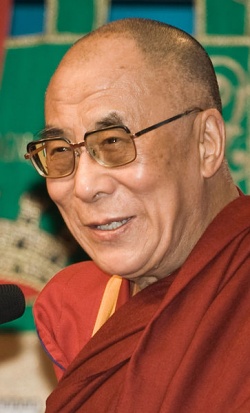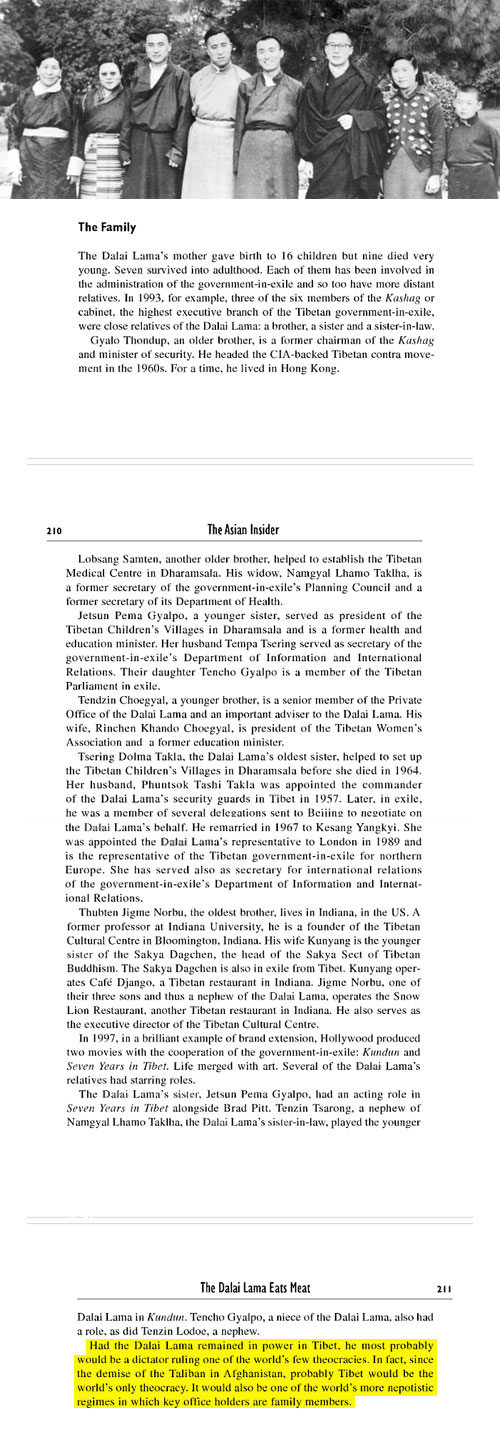Follow the Money - Addendum
In the aftermath of the Chinese invasion of Tibet, the Dalai Lama and the Tibetan refugees were inundated with aid in the form of money, food, clothing, blankets, medicines, land, accommodation, livestock and so forth.
Many international charities, such as The Red Cross, CARE, Catholic Relief Services, The National Christian Council, the American Friends Service Committee, the American Emergency Committee for Tibetan Refugees and others, gave extensively.
Many national governments, such as the UK, France, Canada, New Zealand, the US and especially India gave generously to the Tibetan cause.
In the over fifty years since the Chinese invasion, the plight of the Tibetans rarely leaves media attention for long. It has become without doubt one of the most successful on-going fund-raising campaigns ever, drawing millions and millions of dollars in donations, merchandise and event-tickets each year.
Where has all the money gone? What has it been used for? When Australian journalist Michael Backman tried to discover the answer to these fundamental questions he found:
‘Details of the government-in-exile's funding today are far from clear.’
‘It is not clear how donations enter its budgeting. These are likely to run to many millions annually, but the Dalai Lama's Department of Finance provided no explicit acknowledgment of them or of their sources.’
‘Certainly, there are plenty of rumours among expatriate Tibetans of endemic corruption and misuse of monies collected in the name of the Dalai Lama.’
In part one of this series of articles we quoted from Tashi Tsering’s autobiography, before helping Gyalo Thondup transport the Dalai Lama’s treasure from Sikkim to Calcutta, whilst back in Lhasa before the Chinese invasion, he had worked in the treasury of the Tibetan government.
He recounts his experiences there (p63 of the autobiography):
‘I was still disillusioned and angry about what I had seen going on in the treasury office in Lhasa.
The ordinary people sent their taxes and tribute in the form of money and goods, and both monk and lay officials just took what they wanted.
There were ledgers filled with accounts of tea bricks, butter, cloth, gold, and silver.
I saw the records that showed that the more powerful monks, especially those from aristocratic families and the Dalai Lama's household, "borrowed" any of these things they wished and never returned them.
There was no overall record, no auditing. The officials and their friends and family could come in and take anything they fancied. I saw them doing so with my own eyes.’
Tashi Tsering was offered a position in the newly formed Tibetan-Government-in-Exile, but turned it down:
‘I felt that going to work for the exiled aristocrats and monks would have meant going to work to restore the same old system.’
Could this be the answer to Michael Backman’s questions? Could this be where the money went? In his pursuit of answers, Backman, uncovered some more inconvenient truths:
‘Like many Asian politicians, the Dalai Lama has been remarkably nepotistic, appointing members of his family to many positions of prominence. In recent years, three of the six members of the Kashag, or cabinet, the highest executive branch of the Tibetan government-in-exile, have been close relatives of the Dalai Lama.’
‘An older brother served as chairman of the Kashag and as the minister of security. He also headed the CIA-backed Tibetan contra movement in the 1960s.’
‘A sister-in-law served as head of the government-in-exile's planning council and its Department of Health.’
‘A younger sister served as health and education minister and her husband served as head of the government-in-exile's Department of Information and International Relations.’
‘Their daughter was made a member of the Tibetan parliament in exile. A younger brother has served as a senior member of the private office of the Dalai Lama and his wife has served as education minister.’
‘The second wife of a brother-in-law serves as the representative of the Tibetan government-in-exile for northern Europe and head of international relations for the government-in-exile. All these positions give the Dalai Lama's family access to millions of dollars collected on behalf of the government-in-exile.’
Source
http://www.westernshugdensociety.org/photos/dalai-lama-money-addendum/

